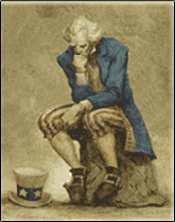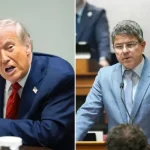
(function(d, s, id) { var js, fjs = d.getElementsByTagName(s)[0]; if (d.getElementById(id)) return; js = d.createElement(s); js.id = id; js.src = “https://connect.facebook.net/en_US/sdk.js#xfbml=1&version=v3.0”; fjs.parentNode.insertBefore(js, fjs); }(document, ‘script’, ‘facebook-jssdk’)); –>
–>
August 23, 2023
The Russian Empire and the Soviet Union were totalitarian regimes, police states that suppressed dissent, countries of great military power that waged economic warfare and thereby affected the well-being of their own citizens, convinced of the legitimacy of territorial expansion and the greatness of the existing regime. They justified their wars by the presence of internal and external enemies. History in Russia has traditionally been used to legitimize power in the country. Russian President Vladimir Putin makes extensive use of the history of the Russian Empire and the Soviet Union to justify current imperialist activities. This traditional approach to Russian history explains Putin’s approval of the USSR’s attack on Finland and occupation of Lithuania, Latvia, Estonia, Bessarabia, Western Belorussia and Western Ukraine in 1939, and the USSR’s aggression against Afghanistan in 1979. Putin’s historical excursions in defense of Russian and Soviet imperialism in the past are a war against historical memory and the construction of a mythologized history adapted to the propaganda tasks of totalitarianism. Russia has historically developed a consciousness of superiority, resentment, and identity that colors its imperialist reflexes. Putin’s Russia is dominated by nostalgia for the Soviet Union, a thirst for establishing “justice” for its collapse, and a desire for revenge. In Putin’s ideology, the past dominates the present, which blocks the consciousness of reality and creates a world of phobias, enmity, and vengeance. The blame for the collapse of the USSR, which Putin called “a historical catastrophe”, is projected by him in the image of an external enemy, NATO, and “Nazi” Ukraine. The enemy is contrasted with the image of a “good” and “fair” Russia, which masks the will to expand and seize territories. These territories are presented as illegally taken from the Soviet Union. All aggressive activities are presented as restoration of justice and return to the borders of the “historical Russian world.”
In the summer of 2006, Oleg Morozov, head of the commission for the preparation of program documents of the pro-Kremlin United Russia party, declared:
We are the party of historical revenge. … Revenge in the sense that the authorities must return to the citizens of … a great country that has fallen apart.
President Vladimir Putin in the movie “Russia: Modern History”, shown on the Russia 1 channel, said that for him the collapse of the Soviet Union was a tragedy and “the disintegration of historical Russia.” “The state lost 40 percent of its territory, production facilities and population,” Putin estimated. “We have turned into a different country completely. This is a great humanitarian tragedy, without any exaggeration,” he added. Russia seeks revenge for the “geopolitical catastrophe of the twentieth century” (Putin’s expression) — the collapse of the USSR. Since no country tore down the USSR, Russia is taking revenge on its largest former component — Ukraine — which refused to submit to Russia as it seeks to reimagine the USSR in a modern empire. Since the collapse of the USSR had no direct culprit, Russia is taking revenge on those who decided that the world could be “unipolar,” that is, that the world could exist without the leading role of the Soviet Union or Russia; against those who have decided that there can be an “end of history” (Fukuyama reference), that is, that there can be a world only under the rule of the United States, NATO, and the “collective West.” “Vladimir” in Russian means “ruler of the world” and Vladimir Putin seeks to gain the status of one of the lords of the world, formerly held by the Soviet Union.
August 23 is the anniversary of the Molotov-Ribbentrop Treaty, a pact to divide Europe between the Soviet Union and Nazi Germany in 1939. The Second World War, which broke out as a result of this treaty, dramatically increased the territory of the USSR, which included new territories that had never belonged to the Russian Empire: East Prussia (former German territory), and the Southern Kuril Islands (Japanese territory). Under the Soviet Union’s rule were the countries of Eastern Europe, called the countries of the socialist camp, which included the anti-NATO Warsaw Pact bloc countries like Albania, Bulgaria, Hungary, GDR, Poland, Romania, and Czechoslovakia, as well as Yugoslavia and non-European socialist countries like Cuba, Mongolia, North Korea, North Vietnam, Laos, Cambodia, and the People’s Republic of China. All of these countries were one-party totalitarian systems.
In physics, it is known that the universe is expanding. The “universe” called the “Russian world” or the “post-Soviet world,” is also expanding. The universe has no boundaries, and neither does the expanding “Russian world” — the war in Ukraine, represented by Putin as “denazification,” is re-colonization. People in the West often believe that the Cold War ended with the disappearance of the Soviet Union, but they fail to recognize an ongoing war to form a new USSR. A new Cold War is underway between the “collective West” and Russia, with a parallel hot war in Ukraine, which is dangerous for the non-Russian world as well.
Image: Free image, Pixabay license, no attribution required.
<!–
–>
<!– if(page_width_onload <= 479) { document.write("
“); googletag.cmd.push(function() { googletag.display(‘div-gpt-ad-1345489840937-4’); }); } –> If you experience technical problems, please write to [email protected]
FOLLOW US ON
<!–
–>
‘); }
<!– _qoptions={ qacct:”p-9bKF-NgTuSFM6″ }; ![]() –> <!—-> <!– var addthis_share = { email_template: “new_template” } –>
–> <!—-> <!– var addthis_share = { email_template: “new_template” } –>





